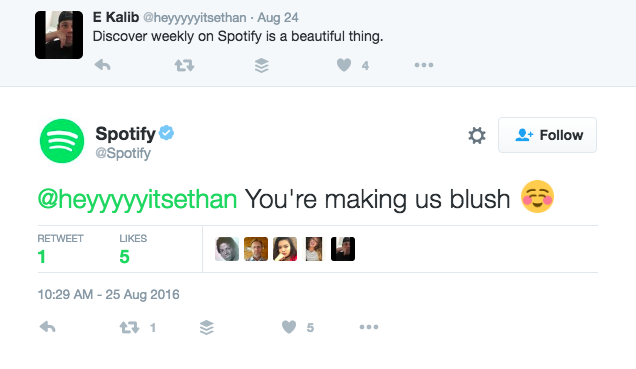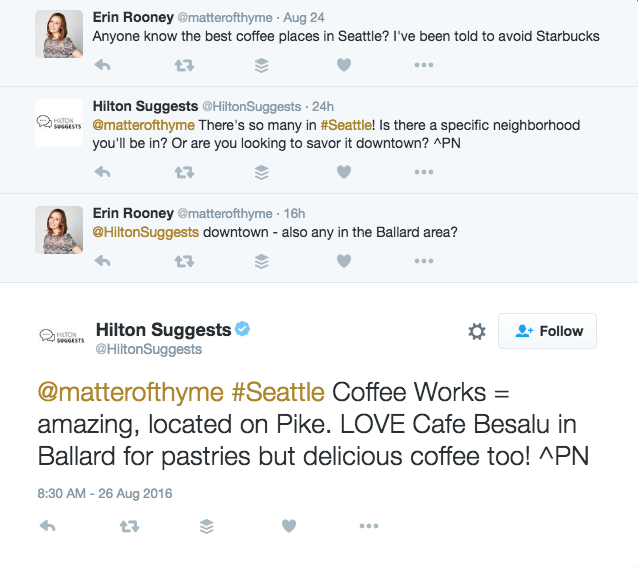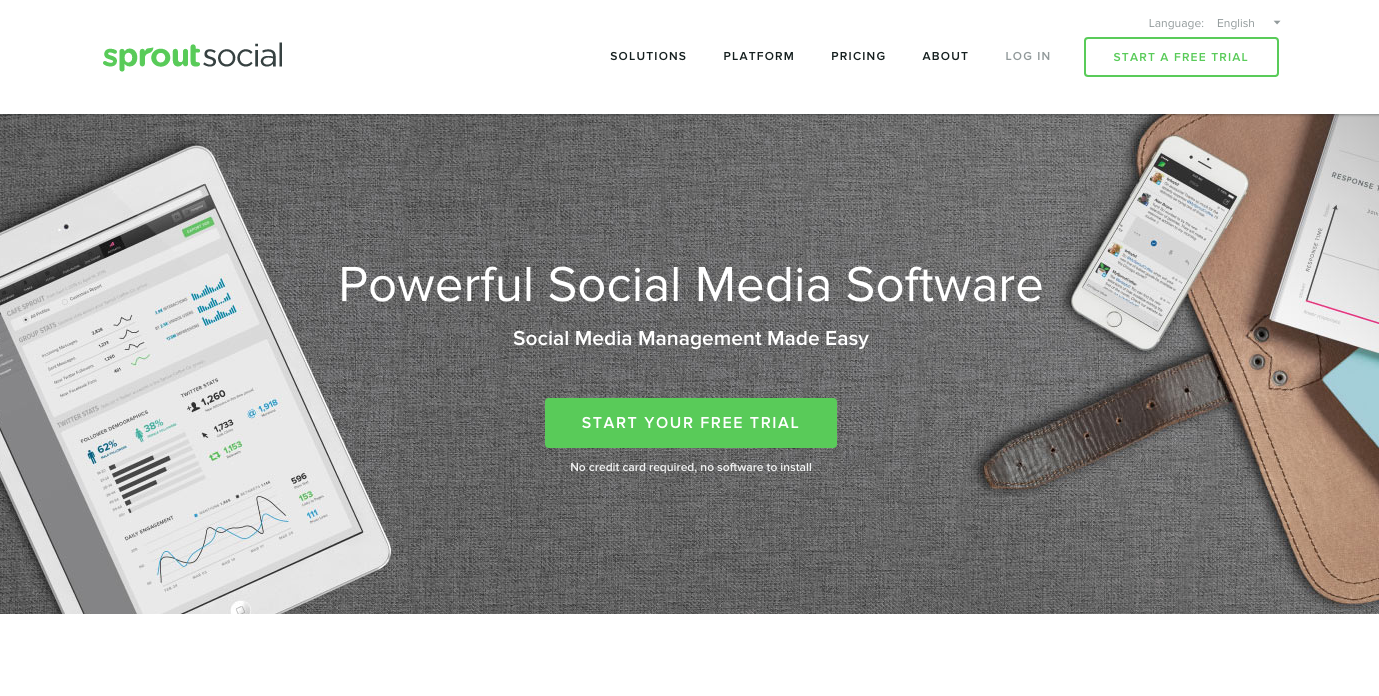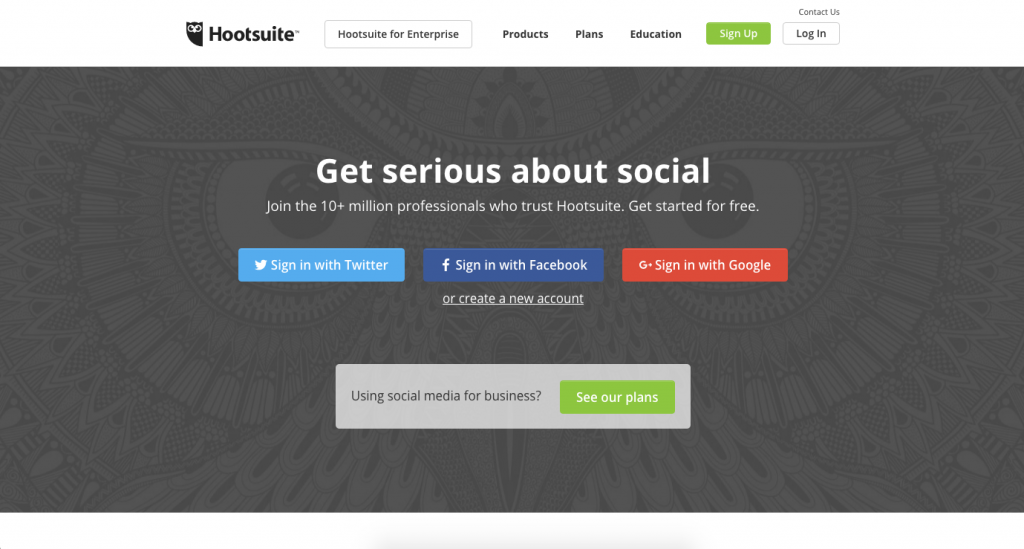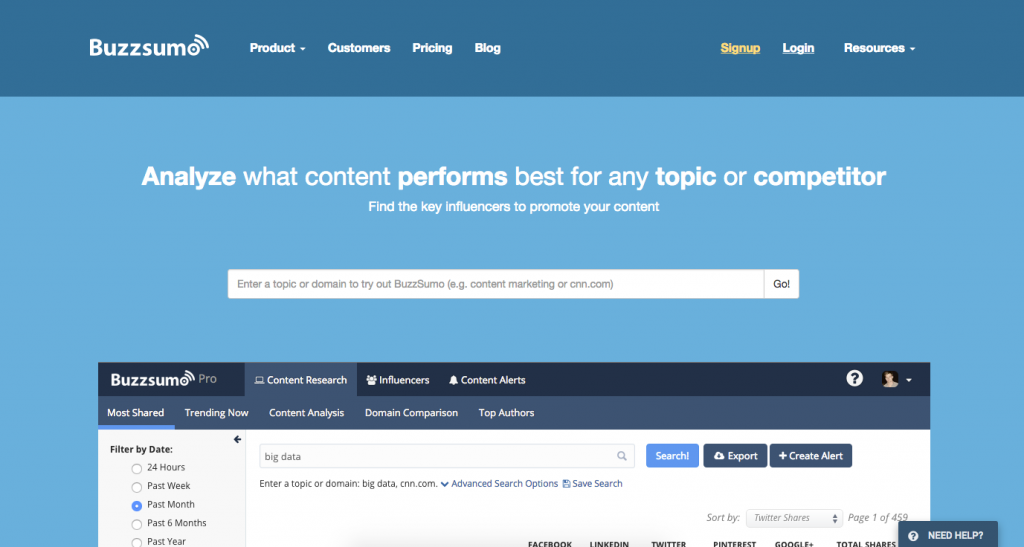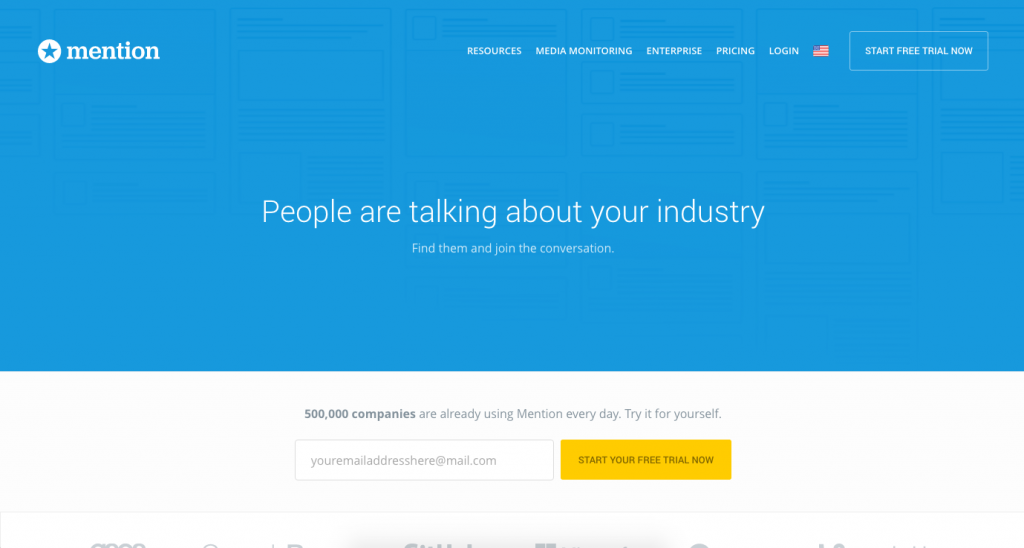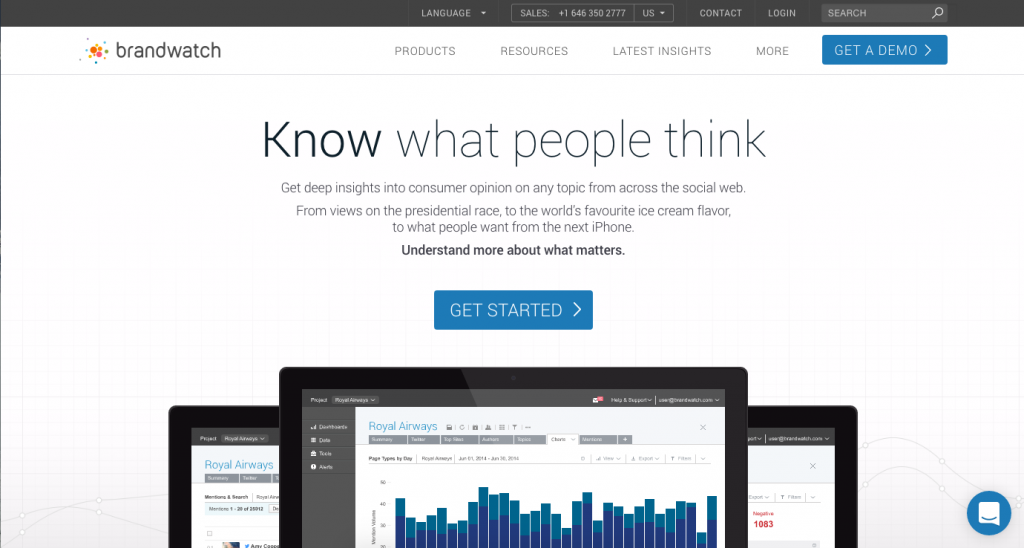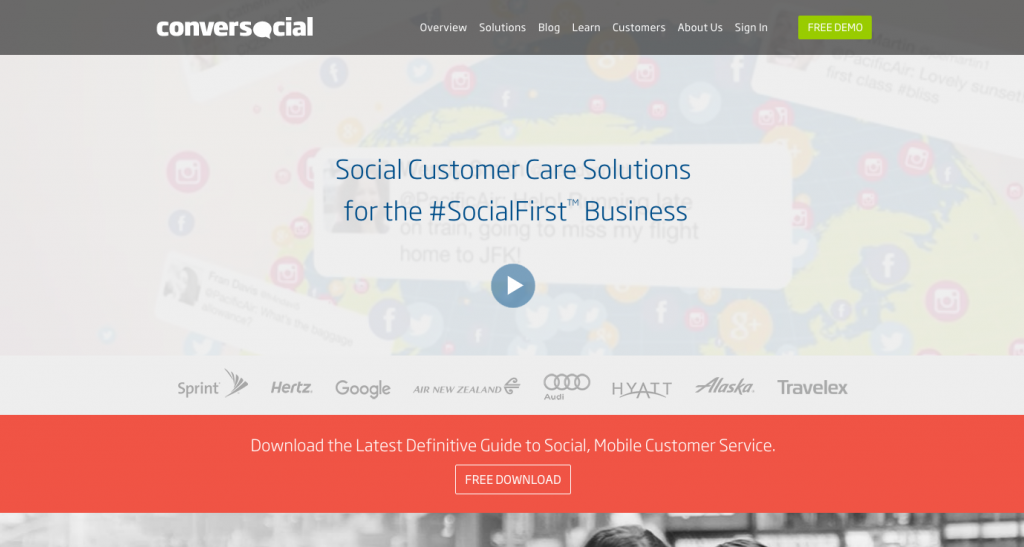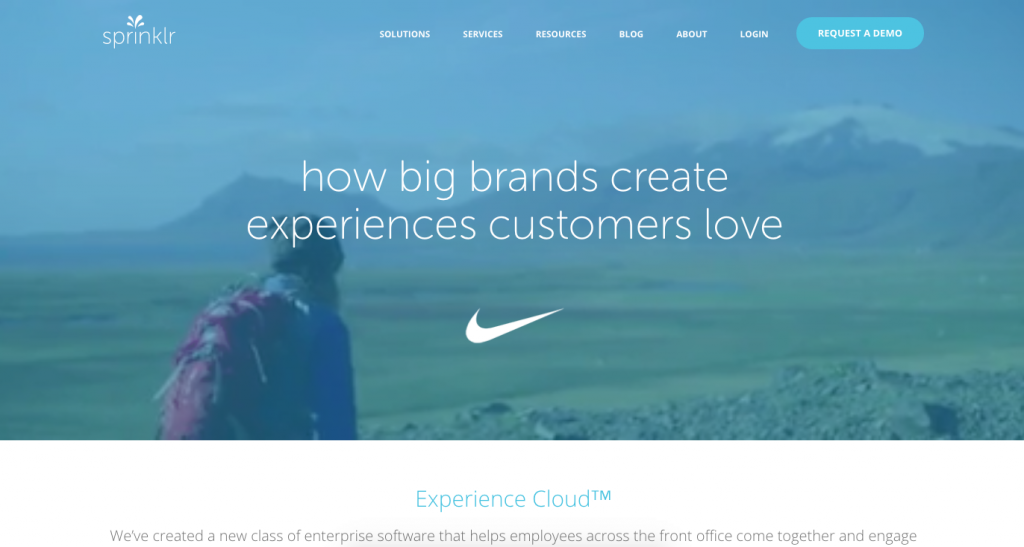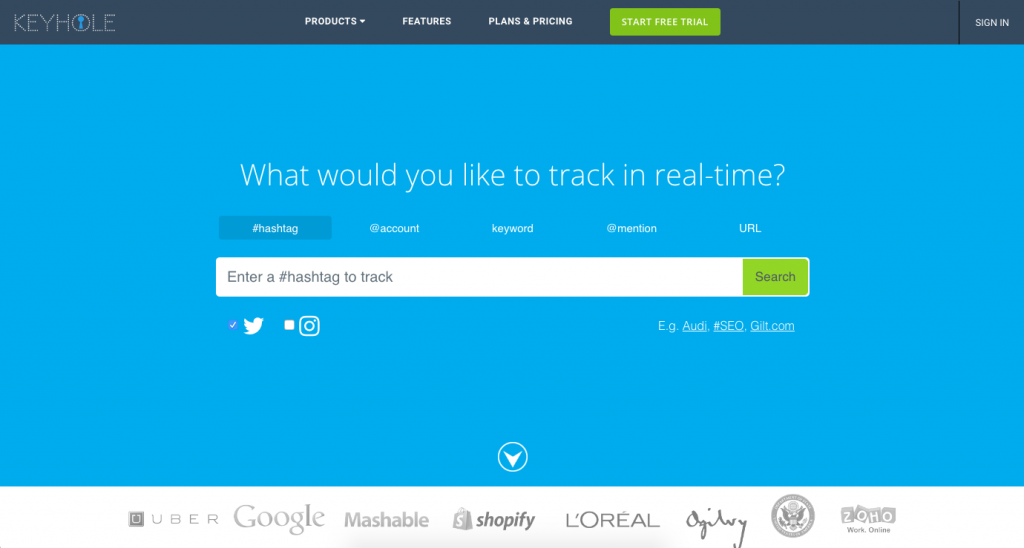The most important social media conversations about your brand usually don’t involve you.
It happens all the time. A customer fires off an angry complaint. Someone shares a problem that your products can solve. If these conversations don’t mention or tag you, how are you supposed to hear about them?
Social listening is a technique for monitoring social media conversations to uncover new opportunities for your business.
With social listening, your business can identify these key moments to engage with users directly and sway their conversations in your favor.
To help you monitor conversations about your brand and transform them into new opportunities for your business, we’ve put together a collection of the top tactics and tools for social listening and media monitoring.
What Is Social Listening?
Social media is a sea of information. Content often dominates feeds, but human interaction is at its heart.
With social listening, you can track existing conversations to find opportunities for your brand to jump in and engage with prospects and existing customers. These organic relationships are the backbone of sustainable, ongoing social media growth and building a dedicated fanbase for your business.
Discovering the opportunities to build these relationships with your customers goes beyond the messages that show up in your business’ Twitter notifications. Social listening is a way for your business to monitor digital conversations at scale, saving you the massive amounts of time and effort that would be required to sort through the noise manually.
Social listening tools track posts based on keywords and phrases relevant to your business to help you find conversations that you aren’t a part of, but should be.
Why Is Social Listening Important?
Social listening is a key tactic for creating a comprehensive social media marketing strategy. It gives you an up-close-and-personal look at your customers and reveals new ways for you to connect with them and build content that reflects their values.
These raw and unfiltered conversations can provide you with a wide variety of insights about your audience. Here are the primary benefits of using social listening for your online store:
Address Indirect Complaints
In the heat of the moment, when customers are most frustrated, it’s understandable that they might not tag your brand while typing up a passionate complaint, especially since only 30% of tweets about brands actually tag their official usernames.
Unfortunately, without using a social listening tool to monitor social media feeds, these complaints would normally go unnoticed—unnoticed by you, that is.
The risk here is twofold: First, your customers will not get their issues resolved. If you can’t see their complaints, you can’t address them and help them have a successful, positive experience with your products.
Second, an unchecked complaint can spiral out of control online, fostering negative sentiment towards your brand. Not monitoring social conversations can leave your business in a vulnerable position and without the appropriate tools to protect itself. Whereas a proactive, social listening-powered approach will help you transform complaints into lifelong customers.
The key to delivering a stellar customer service experience with social listening is to go above and beyond in your response. Your customers don’t necessarily expect a resolution to their complaint since they haven’t tagged your business or product, so you need to go the extra mile to surprise, delight, and win them back.
Uncover Unique Opportunities
On the other hand, social listening can also present new opportunities for your brand to create custom social media content and build relationships with your audience. By tracking keywords that are relevant to your brand, you can reach out to new customers in their moments of highest intent.
Here are the different kinds of keywords that your business should be paying attention to:
- Brand Keywords: Words that are specifically associated with your business, including your company name and any common variations or misspellings. For instance, if your company is called Waterfall Skincare, you’ll want to track “Waterfall Skincare”, “Waterfall Skin Care”, “Water Fall Cosmetics”, etc.
- Industry Keywords: Words that describe the kind of products or services that your store sells. For instance, a t-shirt store would track words like “clothing”, “t-shirts”, and “apparel”.
- Location-Specific Keywords: If your business has a physical store or targets specific locations, be sure to track hashtags and keywords that are popular within the city, state, or country that you’re focusing on. For instance, a company selling Chicago souvenirs would want to track the most popular keywords within the Chicagoland area.
- Negative Keywords: These keywords are ones that you don’t want included in your tracking. If your industry or brand name is commonly associated with non-relevant conversation topics, you’ll want to filter those out. For instance, if you sell dog toys, you’ll want to add “children”, “kids”, “babies”, etc. as negative keywords, so that you aren’t tracking conversations about children’s toys as well.
With social listening, seemingly unrelated conversations can suddenly become chances to impress new customers and engage with your current fans.
Spotify, for example, was able to jump on this tweet despite the fact that it didn’t actually tag their Twitter account. Their response was simple and witty, humanizing their brand and making a personal connection with a loyal customer.
Hilton has dedicated an entire Twitter account to social listening with Hilton Suggests. The account monitors keywords around the names of cities with Hilton hotels to respond to questions about dining and entertainment recommendations with suggestions for local hotspots.
Finding these moments is a three-step process, involving the collection and monitoring of conversations, followed by the analysis of these conversations to determine the intention of the speakers, and then, finally, outreach.
Intention is determined by context and context shapes the way that you should engage with the speakers.
- What is the emotional sentiment of the conversation?
- Will the speakers be receptive to your interaction?
- Is this a relevant opportunity for your brand?
These questions will help you narrow down the context of the conversation and determine how your business should engage, whether that means joining in on a joke or suggesting your product as a solution to a problem.
Get Unfiltered Feedback
Want to know how your customers really feel about your products? From their biggest pain points to their favorite features, social listening gives you direct access to real, honest feedback.
The information that you pull from these interactions is highly valuable for designing better products in the future and improving your current catalogue. Pay attention to what your customers like and don’t like about your products. Try to understand their frustrations and the challenges that they run into.
Remember that negative reviews and comments aren’t personal attacks, they’re opportunities for your business to get better.
If you’ve just launched a new product, you can discover any shortcomings early on by monitoring social conversations. This can get you in front of negative reviews before they start rolling in and help you improve your current products for future customers.
8 Social Listening Tools for Tracking and Influencing Conversations
Trying to tackle social listening manually is tough due to the high volume of content on social media platforms. However, with the right tools, you’ll be able to scale your social listening strategy by curating and parsing more content than you ever could by hand.
We’ve put together a collection of 8 essential social listening tools to help you track, analyze, and leverage social media conversations more effectively.
1. Sprout Social
Sprout Social is a robust social media scheduling platform that also has extensive social listening capabilities. With Sprout Social, you can set up customized feeds of specific keyword, locations, and hashtags across platforms like Twitter and Instagram, opening up a wide variety of ways for you to engage with your audience.
2. Hootsuite
Hootsuite is another powerful social media scheduling platform whose monitoring tools give you the ability to perform large-scale social listening. Hootsuite’s Insights organizes all of your social listening data into an easy-to-digest dashboard that tracks sentiment, demographics, and more.
3. Buzzsumo
Buzzsumo is a content analytics tool that can help you bring your social listening strategy beyond the world of social media. With Buzzsumo’s extensive monitoring tools, you can keep an eye on how your brand is being talked about on blogs and news publications. Set up alerts around keywords, authors, and even backlinks to always stay in the loop of your business is being discussed.
4. Mention
Mention is a social media monitoring platform with social listening features that can help you measure conversations around your business and your competitors. Mention pulls all activity around your brand across Twitter, Facebook, Instagram, YouTube, Pinterest, and more into a single dashboard, letting you see exactly how your store is being perceived across the most popular social media platforms.
5. Brandwatch
Brandwatch is a sophisticated social listening tool with the ability to dive deep into your customer base to uncover hard data and emerging trends. With Brandwatch, you can pull social media insights on any topic, giving you a clear understanding of who your target market is and exactly what they want.
6. Conversocial
Conversocial is a comprehensive social media customer service platform with social listening features that include the ability to track keywords, hashtags, and locations. Conversocial makes it easy to discover new opportunities by monitoring indirect complaints and conversations centering around your products and services.
7. Sprinklr
Sprinklr is a social media marketing platform with a wide variety of features for social listening and reputation management. Sprinklr’s social listening tools help you understand the emotional and conversational context of comments being made about your business online. You can easily track the performance of your brand as well as your competitors and industry.
8. Keyhole
Keyhole is a social media monitoring tool that allows you to track keywords, hashtags, and influencers across social media platforms. With Keyhole, you can set alerts for specific phrases and monitor conversations that involve your store and products. Additionally, Keyhole lets you discover which social media power users are talking about your products and using keywords that are relevant to your industry.
Join in on the Conversation
Social listening isn’t just about monitoring, it’s about creating and participating in real conversations about your brand and products. Don’t be afraid to push your limits and extend beyond your comfort zone to reach out to your customers. The human connections that you’ll be creating are of incredible value to your business.

